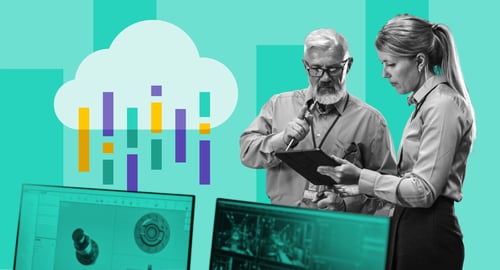As expected, generative AI seemed to be the main topic discussed at SAP TechEd last week, but ERP professionals should take a closer look at the announcements about SAP’s “journey to cloud ERP.”
The main reason is that SAP plans to end support for its legacy product, SAP ECC, in 2027 and is trying to move current customers to the other primary ERP solution, SAP S/4 HANA.
SAP’s journey to cloud ERP
SAP ECC has been around for more than 40 years and has close to 50,000 customers, so moving at least a significant chunk of them to another product is a monumental challenge.
To SAP’s credit, the vendor invested a lot in multiple initiatives to facilitate the migration, such as Rise with SAP (a mix of software, infrastructure, and services to support SAP ERP migration to the cloud) and a new reward program for Rise with SAP customers.
At TechEd, SAP announced new features to assist customers with implementing SAP S/4HANA Cloud, public edition.
Also, the new Accelerate for GROW with SAP combines services, tools, and methodologies to help mid-market customers improve business processes and increase cloud adoption.
Finally, functional enhancements were announced for asset and maintenance management, a new solution for oil and gas, and a data-sharing network for the automotive industry.
How SAP S/4 HANA and SAP ECC compare on G2
Speaking of functionality, I wanted to see how the two products compare based on user reviews. Their overall scores are close (4 stars for SAP ECC and 4.5 for SAP S/4HANA Cloud), which also applies to functionality for production management such as MRP and MPS.
The graph below shows manufacturing features scores on a scale from 1 to 7.
While it may be tempting to dismiss SAP ECC by arguing that it’s an older product that’s not easy to use and maintain, our reviews indicate that it has many recently satisfied users. This may make it even more difficult for SAP to convince them to migrate to SAP S/4HANA Cloud.
How G2 can help SAP ECC users on their journey to the cloud
While SAP pulls out all the stops to keep customers, some may want to consider other alternatives. The others may want to compare SAP S/4 HANA and SAP ECC to ensure they have the same or similar features.
Not to mention that SAP has other ERP products, like SAP Business by Design and SAP Business One. Also, everyone should look at market trends and benchmarking, which help them better understand the ERP market and the pain points of their peers.
Complex migrations may require working with SAP partners, and our new SAP Consulting Services category allows buyers to review and compare SAP implementers and consultants. Furthermore, companies can find the optimal partner by filtering by product and industry expertise.
Learn more about how cloud ERP helps address manufacturing challenges.
Edited by Jigmee Bhutia


 by Gabriel Gheorghiu
by Gabriel Gheorghiu
 by Gabriel Gheorghiu
by Gabriel Gheorghiu
 by Gabriel Gheorghiu
by Gabriel Gheorghiu